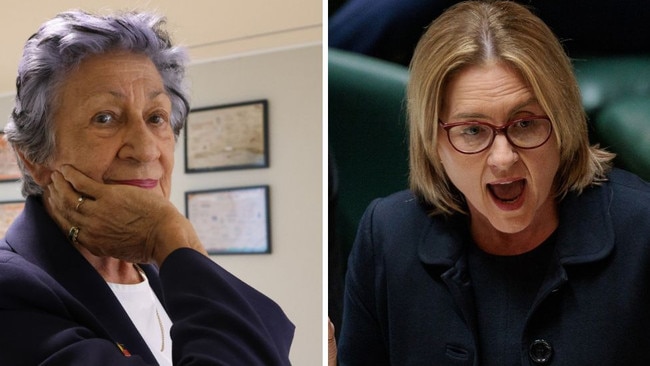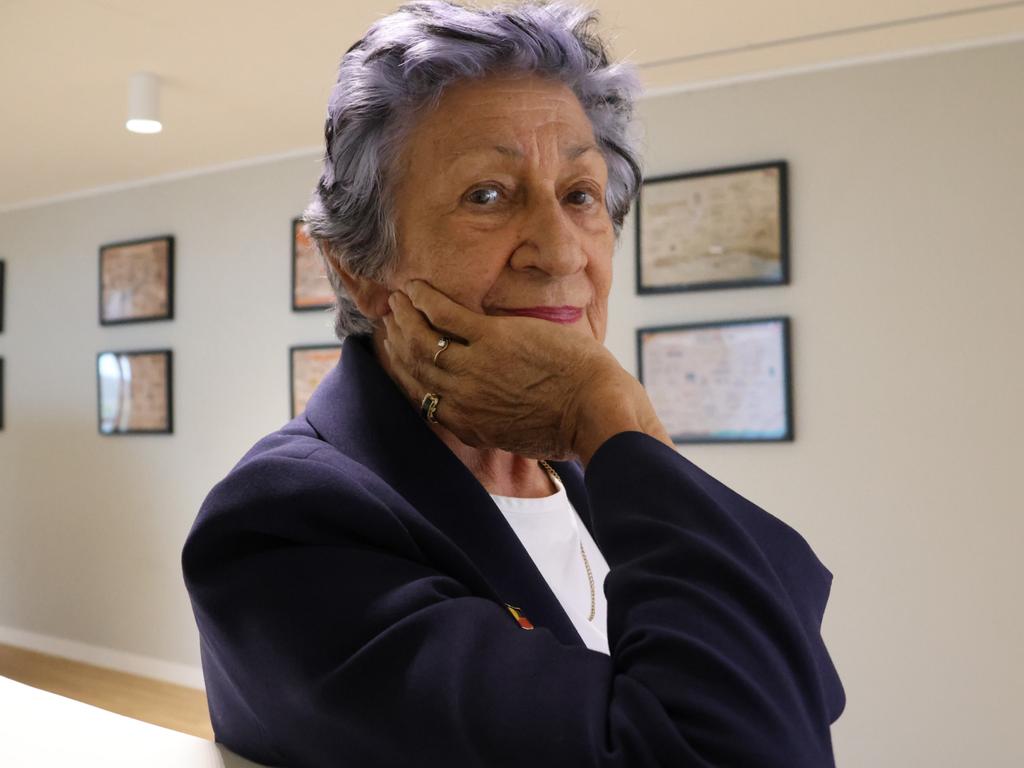Yoorrook Justice Commission chair criticises Victorian government’s controversial bail reforms
The chair of Victoria’s first truth-telling body charged with investigating Indigenous injustices has skewered the Victorian Labor government’s ‘toughest bail laws ever’.

Victoria’s Yoorrook truth-telling leader has taken aim at Jacinta Allan’s bail reforms and questioned the meaning of apologies given by Labor ministers and officials to the state’s Indigenous communities.
Setting the Yoorrook Justice Commission on a collision course with the Allan government over law and order just weeks before the release of its final report from its four-year roving royal commission, chair Eleanor Bourke has warned of “collateral damage” from the government’s bail laws.
In a Melbourne Press Club address on Tuesday, Professor Bourke also said the failed 2023 voice referendum had caused Indigenous matters to become a “a political football”, echoing criticisms made by national Indigenous leaders in the past week over the fallout from the vote.
Indigenous leader Noel Pearson on Saturday issued a stinging rebuke of both Anthony Albanese and Peter Dutton’s behaviour in the wake of the voice’s defeat, while voice architect Marcia Langton last week urged the Prime Minister to go beyond “warm acknowledgments of traditional owners”.
“These [the Victorian government’s] apologies were important, they are important, historic even. But without action, what do they actually mean?” Yoorrook Justice Commission chair Professor Bourke asked.
“There has, of course, been a long history of governments going back on their word when it comes to implementing meaningful and enduring changes to improve First Peoples’ lives.
“Every decision not to act has the added effect of maintaining the status quo.”
Professor Bourke’s comments come ahead of Yoorrook – which is Victoria’s first truth-telling body charged with investigating and documenting historical and ongoing injustices experienced by First Peoples in Victoria – delivering its final report to government by June 30.
She pointed to the Victorian government’s bail reforms, which were described by the Premier as the “toughest bail laws ever” when she introduced them in March in a bid to tackle the state’s rising crime rates.
“In March, the government repealed bail laws which had only come into effect a year earlier, laws that were the culmination of decades of relentless advocacy, coronial inquests and Aboriginal deaths in custody,” Professor Bourke said.
“However, as adults, our people are 14 times more likely to be imprisoned than other Victorians and our children are at least 10 times more likely to be in detention.
“The justice system was not designed by, for or with our people.
“If you cast a net wide, as these laws promise to do, there will be collateral damage, like those experiencing poverty, homelessness and intergenerational trauma.”
Professor Bourke, who has previously criticised the government for its lack of support in relation to Yoorrook’s interim recommendations, said the final report would contain more than 100 recommendations, which she indicated might include changes to school curriculums.
“Yoorrook also wants to see improvements to education, such as the way history and other subjects are taught in school,” she said.
“This includes better teaching methods for First Peoples students and for all children to be educated as to the true history of the place now called Victoria and its impacts on First Peoples.
“This also requires appropriate training of teachers.”
In her speech, Professor Bourke said that the 2023 voice referendum had caused support for treaty processes and for truth-telling to plummet.
“Political campaigning and media reporting opened the floodgates for racism, misinformation and fear-based narratives,” she said of the referendum.
“Suddenly, after years of progress in Victoria, Yoorrook was operating in a very different political and media environment.
“First Peoples matters had once again become lumped together – a political football.”
Professor Bourke said she hoped the recent federal election would lead to a recommitment to bipartisanship in relation to First Peoples policies at both federal and state levels.
“It is time to come together to create real and lasting change – for our people, and for all Victorians,” she said.
Professor Bourke’s comments came after Professor Langton urged the Prime Minister to use his landslide election victory to be courageous in Indigenous policy.
Mr Pearson lamented that the past 18 months following the voice had been “the most forlorn in the history of Indigenous affairs”, with no serious policy or program progress.
“Extreme paranoia permeated everything to do with blackfellas in Canberra, even in relation to subjects far removed from the voice,” Mr Pearson wrote in The Weekend Australian.
“Did they vote against the Trump-style culture wars policies? I am not so sure,” Professor Langton said last Monday of the federal election result.
“I would like to think they did, but if the best we can hope for from the victory speeches by Penny Wong and Anthony Albanese on election night are warm acknowledgments of the traditional owners, we should expect more extreme caution from an Albanese government in tackling the extreme disadvantages faced by a large proportion of the Indigenous peoples.
“Big-picture innovation in Indigenous affairs will be curtailed by a continuing fear of alienating the majority who voted No in 2023 to constitutional recognition and the voice.”





To join the conversation, please log in. Don't have an account? Register
Join the conversation, you are commenting as Logout